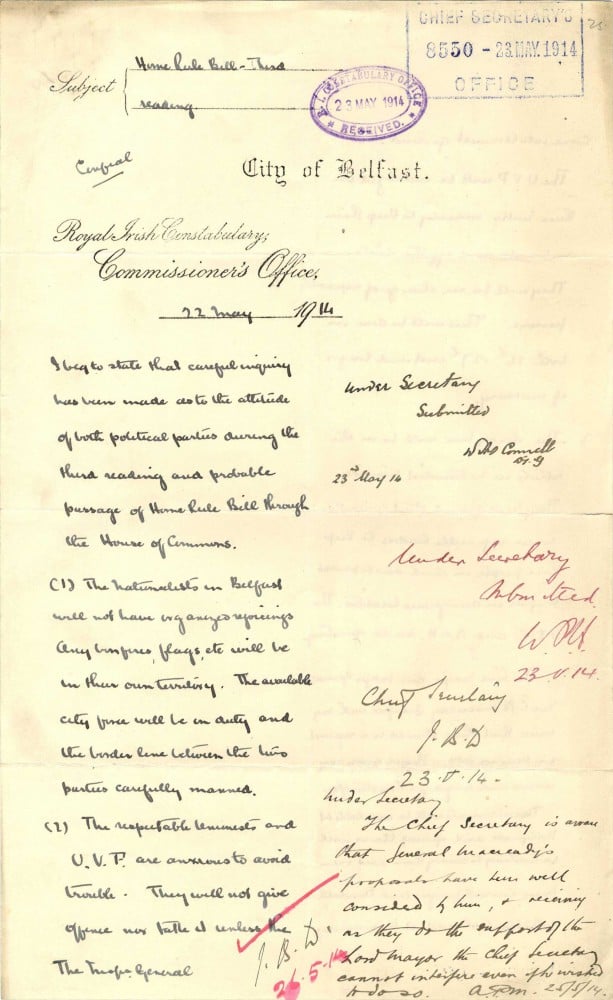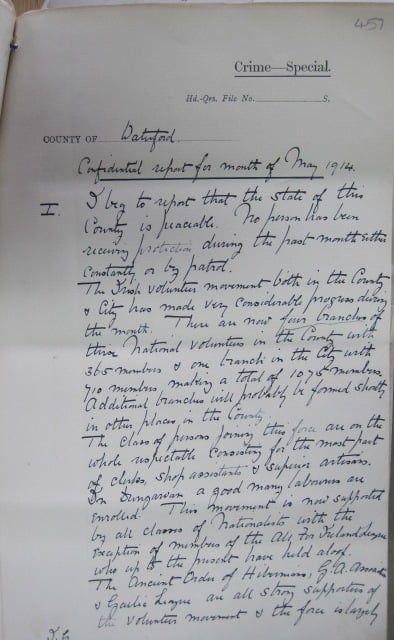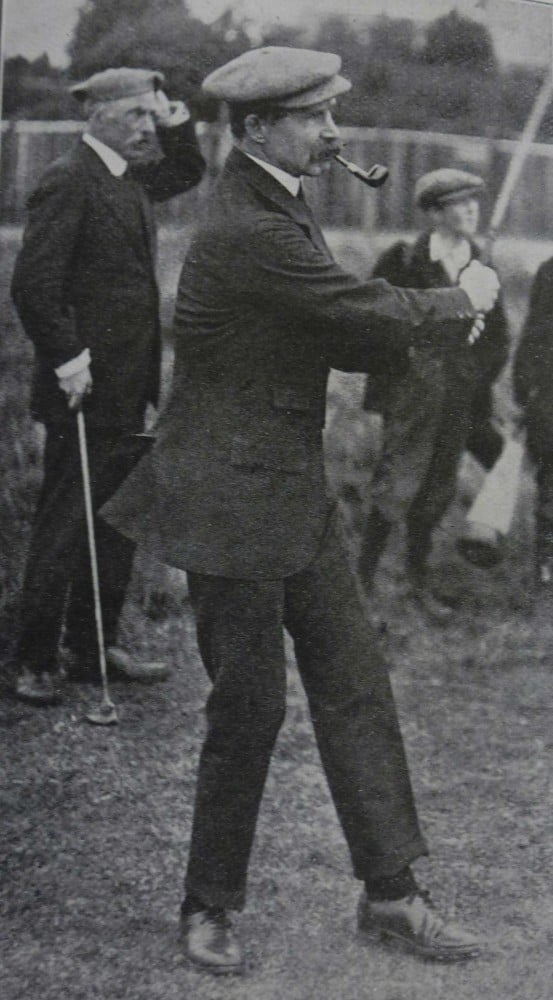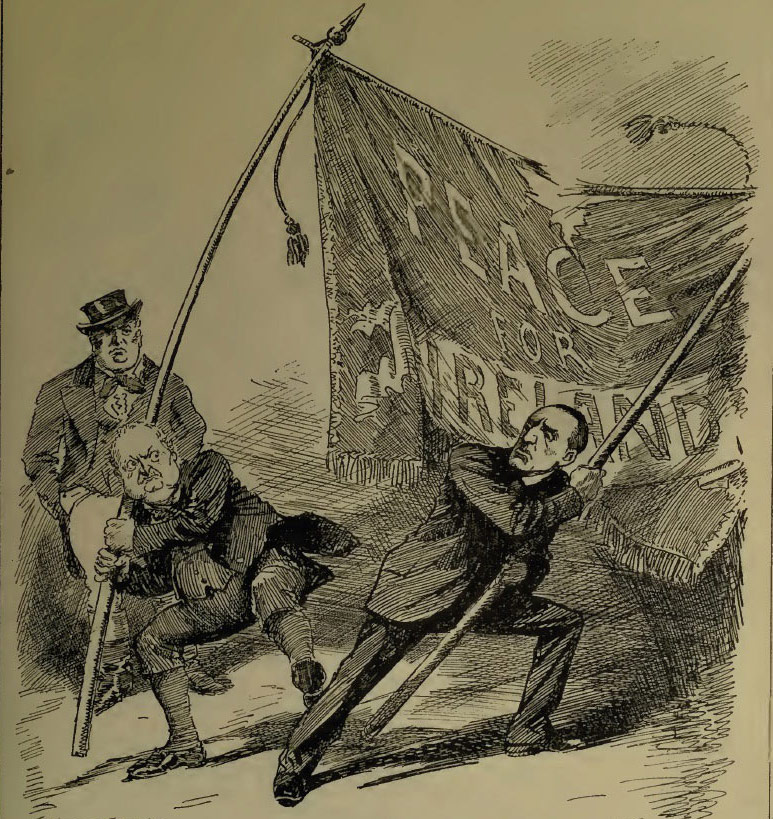Redmond proclaims the death of the Act of Union
The third reading of the Home Rule Bill has been passed in the House of Commons
London, 26 May 1914 - John Redmond has declared that the Act of Union between Great Britain and Ireland is now dead.
The leader of the Irish Parliamentary Party said that the assembling of an Irish parliament, under the provisions of the Home Rule Bill, was now as certain as the rising of tomorrow’s sun.
Mr. Redmond was speaking yesterday after the third reading of the Home Rule Bill in the House of Commons had ended with a majority of 77 votes in favour of the Government.
Mr Redmond said: ‘Today’s division marks the death, after an inglorious history of 114 years, of the Union of Pitt and Castlereagh. That Union, the cause of Ireland’s poverty, misery, depopulation and demoralisation - the cause of famine, insurrection and bloodshed, and of the disloyalty of the Irish people throughout the world - is dead and its place is to be taken by a new union, founded on mutual respect and goodwill between the two islands. And to be followed, I firmly believe, by the history of peace, prosperity and goodwill, between the two islands.’

|

|
Left: RIC report from Belfast stressing the importance of keeping
nationalist and unionist groups apart in the wake of the third
reading of the Home Rule Bill in the House of Commons. It states:
'The Nationalists in Belfast will not have organized
rejoicings. Any bonfires, flags etc will be in their own
territory. The available city force will be on duty and the border
line between the two parties carefully manned.' (Image:
National Archives of Ireland, CSO/RP 1924, 8550)
Right: Confidential RIC report from Waterford detailing the
celebrations in the county and city as a result of the third
reading of the Home Rule Bill. Its author also includes a
cautionary note: 'If... an amending Act was passed totally
exluding Ulster or a portion of it, considerable resentment would
be aroused here, though it is hard to say what form that
resentment would take.' (National Archives UK, CO 904/93)
He continued: ‘The Union, as we have known it, is dead. There are only two eventualities - and both of them are impossible - which could possibly prevent the Home Rule Bill becoming a statute in a few weeks’ time.’
‘Patience and discipline and mutual confidence between the members of the Irish Party and their British allies have carried the day, and I think there is not an Irishman in the world today who must not now rejoice to think that he has lived to witness the end of the Union of Pitt and Castlereagh.’
‘I take this opportunity to express the most earnest hope that now when everybody in Ulster, as elsewhere in Ireland, has to face the indisputable fact of Home Rule and a Home Rule Parliament, those of our fellow countrymen who are nervous as to their position, will abandon unreasonable demands and enter into a conciliatory discussion.’
‘I say on behalf of the nationalists of Ireland that we desire their co-operation and friendship, and I appeal to them in all parts of Ireland to join hands with us in making the Home Rule settlement one that will ensure the prosperity and the freedom of all classes in the country.’
The reaction from opponents of Home Rule suggested there was no prospect of such co-operation. The leader of the Conservative Party, Andrew Bonar Law, described the proceedings in the House of Commons as ‘a contemptible farce’.

Mr Bonar Law, pictured here at the Greystones golf club, has warned that the final act of the Home Rule drama will not take place in the House of Commons, but in the country. (Image: Irish Life, 6 June 1914)
He said they always knew that the government had the power to push through their bill, but in doing so they have deprived themselves of all moral authority.
He concluded: ‘The final act in this drama will be played, not in the House of Commons, but in the country - and there, Sir, it will not be a farce. It is to the people that we appeal.’
The Prime Minister Herbert Asquith rejected Mr. Bonar Law’s accusations and said that his government would, nonetheless, bring forward a later bill to amend the existing bill, ‘not because we think the bill bad, or an imperfect bill, but because we are anxious to secure something like acquiescence and peace’.
[Editor's note: This is an article from Century Ireland, a fortnightly online newspaper, written from the perspective of a journalist 100 years ago, based on news reports of the time.]





















